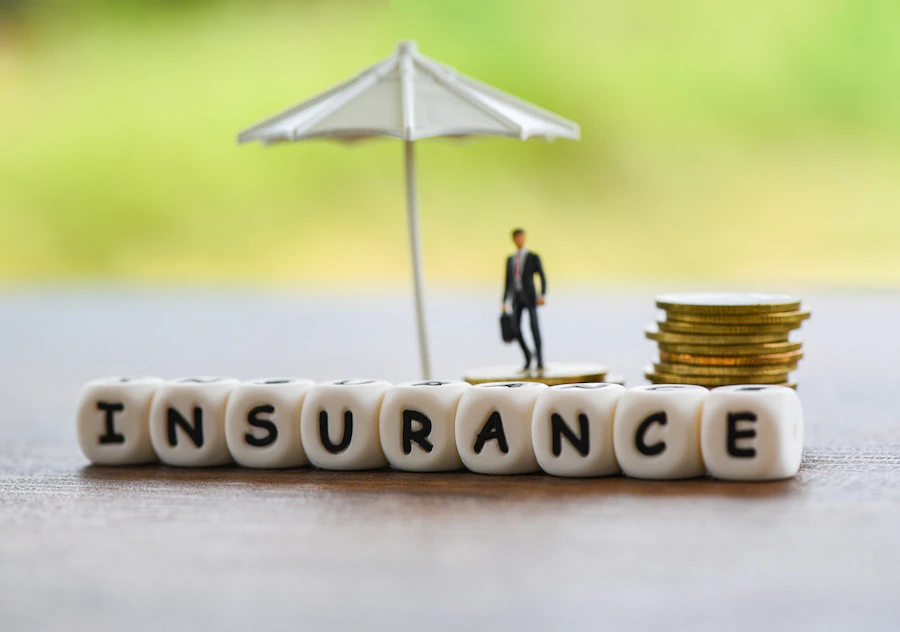Maximizing Home Insurance Coverage For Your At-Home Business With Riders

Home insurance is a type of property insurance that helps cover expenses related to property damage and loss. It can offer financial and legal protection in case an unfortunate incident happens within an insured property.
The specific coverage can vary depending on your policy. In most cases, however, it does not cover home-based businesses. The good news is that you can include this as a rider. This way, you can have peace of mind.
Make the most of your home insurance. Read on and we’ll share some tips on how you can maximize your coverage for your at-home business.
How Can Insurance Riders Protect Your At-Home Business?
While conventional home insurance can protect your home, it might not offer the same coverage to your home-based business.
Whether a self-employed professional or a home-based business owner, you might need insurance riders for additional protection.
Below are some of the most common instances when home insurance riders may prove necessary:
- When your customers go to your house for face-to-face meetings, buy products, or avail of your services
- When you keep business inventory or supplies in your house
- When you have employees working in or out of your home
- When you can potentially lose business income because of damage to your home
- When you have a computer that keeps business/customer data
Start By Calling Your Insurer
If you’re building a home-based business, one of the first things to do is to call your current home insurance provider. This can be an opportunity to clarify what’s covered and what isn’t. This way, you can gauge the need to purchase additional coverage, depending on your business needs and financial capacity.
More so, calling your current home insurance provider might make you eligible for a discount. For instance, this can happen when you purchase at-home business insurance as a rider compared to a separate policy from the same company. You can qualify for insurance bundling and enjoy cheaper rates. It depends on what the insurer can offer.
Work with an agent to find the right rider coverage. Don’t hesitate to ask questions. Provide realistic projections about your business. For example, if you anticipate it to grow big, you might need more than a rider in the future.
Go Beyond The Price
Many home business owners will consider the price when buying an insurance rider. While such is a crucial factor, it should not be the sole basis of your decision. Cheaper isn’t always better. It’s critical that you read the terms and conditions to know the specific coverage. In most cases, you should not mind the additional expense if it means peace of mind.
Coverage You Might Need
As you evaluate the options for an insurance rider, one of the most important is to identify your needs. From here, it will be easier to narrow down the possibilities. For instance, it is useless to be paying coverage for a business vehicle if you don’t have one used for your business operations.
Among others, one that you might need is business property insurance. When you file a property damage claim for your home insurance, it might not cover those you use in your business if you don’t have the right rider. Meanwhile, when you add business property insurance, you can also insure business equipment, such as computers and printers.
More so, your at-home business insurance rider can also include liability coverage. This type of business insurance protects against financial losses from property damage, bodily injury, medical expenses, and defending lawsuits, among others.
Consider Other Ways To Increase Coverage
In this post, our focus is on at-home business insurance riders. The latter is an endorsement policy on top of your existing insurance. According to the Insurance Information Institute, you can enjoy coverage of up to $5,000 for as low as $20 per year.
In most cases, qualifying for a rider has a maximum requirement regarding business receipts, depending on the insurer. For instance, it can be limited to those with a maximum business receipt of $5,000.
For larger business receipts, however, a rider may not be enough. In this case, you might need to purchase a standalone business owner’s policy. It can combine property and liability coverage in one different from your home insurance.
Conclusion
With more and more people operating their businesses at home, insurance becomes more important. Your standard home insurance might not cover your business needs, so purchasing a rider can be a good idea.
Find a reputable insurer and go beyond price when exploring alternatives. Meanwhile, if the business is larger, a rider may be insufficient. Instead, you’ll need stand-alone business insurance.
Additionals:
Tips To Update Your Manufacturing Business Through CNC Machines
What Is An Operating Agreement: Does Your Business Need One?
Understanding How VPS Hosting Can Help You Grow Your Online Business
Tags:
Abdul Aziz Mondal
Abdul Aziz Mondol is a professional blogger who is having a colossal interest in writing blogs and other jones of calligraphies. In terms of his professional commitments, he loves to share content related to business, finance, technology, and the gaming niche.
Recent
Time Matters: The Role of Early Hazard Detection in Industrial Safety
Jan 20, 2026

Hidden Ignition Risks in Industrial Environments
Jan 17, 2026

Critical Thinking Exercises in the Digital Age and Emotional Intelligence Integration
Jan 14, 2026

Why Strategic Partnerships Matter More Than Ever
Jan 13, 2026

Related Articles

Risk & Reward: Navigating The Game Of Small Business Insurance For Lasting Peace Of Mind
In a fluctuating abroad of small enterprises, the quest for achievement usually comes with the help of several risk variables. Small enterprise owners are familiar enough with the challenges they have to deal with, but what about those unexpected events that might undermine their hard work? This is where the game of small enterprise coverage comes into use, providing a tactic to avoid dangers and ensure long-term peace of mind. In this edition, we delve into the remarkable ratio of threat and praise in the arena of small commercial coverage. Assessing Small Business Risks Identifying Potential Risks Step one in designing a solid coverage strategy is knowing the unique risks that your enterprise faces. Capability threats facing small groups range from damage to assets to claims for legal responsibility. For instance, a restaurant might further face slip-and-fall accidents, while a tech startup can be at risk of data breaches. Analyzing The Impact Of Risks These risks may have an excessive impact on the financial stability of your commercial enterprise. Take for instance a boutique retail store that is going through a flood, which destroys its stock and disrupts its operations. Without proper coverage coverage, the consequences can be economically catastrophic, perhaps leading to shutdowns. Types Of Small Business Insurance General Liability Insurance General legal responsibility insurance serves as a foundational shield in opposition to diverse risks. It presents coverage for bodily injury and property harm claims, protecting your enterprise from capacity proceedings. Whether a consumer slips on wet ground or there is damage because of your products, trendy legal responsibility coverage is a critical thing of a complete threat management method. Property Insurance Property insurance safeguards your physical assets, such as homes, equipment, and stock. Small corporations invest considerably in those properties, and unforeseen occasions like fires, theft, or herbal screw-ups can pose a great hazard. Property insurance guarantees that the financial burden of such events is alleviated, making an allowance for a fast restoration. Business Interruption Insurance Business interruption insurance is an insurance policy that helps reduce the financial effect of those disrupting your business activities. Be it some natural tragedy or abrupt cases such as pandemics, this policy compensates income loss for your business and helps you to stay financially afloat during these hard periods. Customizing Insurance Coverage Tailoring Policies To Business Needs Every small commercial enterprise is particular, and so are its dangers. Working with insurance vendors, together with Nation North Insurance, to customize insurance guarantees that your precise desires are addressed. Whether you operate in an excessive-legal responsibility enterprise or face specific dangers, tailoring rules to your business's wishes is a proactive step closer to complete safety. Understanding Policy Exclusions While customizing coverage, it is crucial to apprehend policy exclusions. Examining common exclusions allows discover ability gaps in insurance that may leave your enterprise vulnerable. Nation North Insurance, with its knowledge of small business coverage, can guide you through the intricacies of coverage terms and exclusions. Cost-Benefit Analysis Of Small Business Insurance Weighing The Costs Of Insurance Premiums Investing in insurance comes with an economic cost, but the benefits often outweigh the rates paid. When considering coverage, it is crucial to weigh the fees towards the potential risks. While the upfront costs may additionally seem enormous, the lengthy-term financial savings and safety provided by way of coverage offer a precious return on funding. Quantifying The Value Of Peace Of Mind Beyond the economic components, small business insurance contributes to the intangible yet helpful asset of peace of thought. Knowing that your commercial enterprise is included in opposition to unforeseen occasions allows you to recognize growth and success. The experience of safety provided via insurance is a key element in navigating the demanding situations of entrepreneurship. Risk Management Strategies Implementing Proactive Risk Mitigation In addition to insurance, small agencies can implement proactive change mitigation strategies. This consists of employee education, protection protocols, and measures to save you from common dangers. By being proactive, agencies can lessen the chance of incidents that can cause insurance claims. Establishing Emergency Preparedness Creating a contingency plan for sudden occasions is a crucial issue of hazard control. Small corporations ought to establish emergency preparedness protocols that define steps to be taken on the occasion of a disaster. Collaboration with insurance vendors can assist in developing powerful emergency plans. The Role Of Professional Advice Consulting With Insurance Experts Navigating the complexities of small business coverage requires expert steering. Consulting with skilled insurance experts, like the ones at Nation North Insurance, guarantees that you make well-informed selections. Their knowledge lets you understand the nuances of policies, pick the proper coverage, and cope with any concerns particular to your enterprise. Conclusion In the intricate sport of small commercial enterprise, studying the dynamics of hazard and praise is paramount. Small business coverage, with its tailor-made insurance and protection, serves as a strategic device for ensuring lasting peace of thoughts. By assessing dangers, customizing coverage, and weighing the expenses against the benefits, businesses can navigate the challenges with self-assurance. For complete small commercial enterprise coverage solutions, bear in mind partnering with Nation North Insurance – your relied-on ally in the pursuit of chance mitigation and long-term fulfillment. Read More: Malpractice Vs Negligence – Let’s Find Out The Difference Is Startup Business Insurance Necessary For New Businesses? What Is Commercial Insurance? And Its Different Types – Let’s Discuss
Jan 11, 2024

Guaranteed Issue Life Insurance: Is it Worth It?
Purchasing a life insurance policy is a troublesome process that requires going through different medical tests and answering health questionnaires. Have you ever thought of getting a policy without undergoing these processes? Well, guaranteed issue life insurance comes with some excellent benefits to getting rid of this process. For example, this policy doesn’t require any medical exam or even answering questions about your health condition to purchase. But this type of life insurance offers higher premium rates with lower and inflexible coverage. Now you may be confused about the best-guaranteed issue of life insurance: is it worth it? To clear up your confusion, keep reading the entire context. Here you will find a comprehensive discussion regarding guaranteed issue life insurance. What Exactly Is Guaranteed Issue Life Insurance? Guaranteed issue life insurance is one kind of permanent life insurance known as non-medical life insurance. This is because this type of insurance doesn’t involve any medical examination. Even guaranteed issue life insurance doesn’t require any medical records to show and answer health questionnaires in front of the insurer. You have to submit an application to the insurer to purchase a guaranteed issue insurance policy and wait for the approval. Most insurance companies approve on the same day of application, while others require 48 hours. Unlike traditional life insurance, premium guaranteed issue life insurance are a little bit higher. However, the coverage of this insurance is guaranteed and enough to cover funeral all expenses and small debts. How Does Guaranteed Issue Life Insurance Work? Guaranteed issue life insurance works differently than any other traditional life insurance. First of all, it requires the insured to fill out only a basic application without any medical examination or submitting records. The application filling out process can be made both online and offline. Those who are applying for guaranteed issue health insurance actually need approval from the insurance companies. Once you obtain the approval, you can purchase the policy right away. In general, guaranteed issue life insurance comes with a two-year waiting period to pay out. For that, your beneficiary won't get full coverage from your policy if you die during the waiting period. Since Guaranteed issue life insurance is a kind of permanent life insurance, you will have to pay premiums as long as you're alive. And the cash value feature of this insurance will allow you to borrow money until your death. Advantages Of Purchasing Guaranteed Issue Life Insurance Before deciding whether guaranteed-issue life insurance is worth it, it is crucial to know what benefits this insurance offers. For your convenience, here we have talked about some significant advantages of purchasing guaranteed issue life insurance. 1. Pay Off Funeral Expenses According to the National Funeral Directors Association, today, completing a funeral needs more than $9,000 on average. This cost mainly spends on purchasing a plot, final preparations, cremation, caskets, and other necessities. Bearing this cost can be difficult for a family, especially if the only earning person dies. In that case, guaranteed life insurance will help pay off all of these expenses. 2. Bear Your Medical Bills Most people are usually suffering from different diseases in old age. For that, they have to spend a huge amount of money on medical bills before death. This bill includes medications, hospital stays, medical procedures, and specialist care. Paying off such costs is quite challenging for anyone, especially in old age. But if you have guaranteed issue life insurance, you won’t have to worry about this. This insurance will cover all your medical expenditures. 3. Pay Off Your Left Debts Some people left different debts before death, including personal loans, car loans, house loans, or other loans. Paying off these debts is quite troublesome for a family after anyone's death. In that case, if the dead individual has any guaranteed issue life insurance, his/her family won't have to be tense about paying off the debts. The insurance coverage will help pay off the left debts along with the funeral expenses. 4. Support Your Family Financially If your family relies only on your income to pay off daily necessities, your whole family may have to undergo a financial crisis after your death. The situation will be worse if you leave your children's education fees unpaid. Bearing these costs will be challenging for your family without your income. In that case, if you leave guaranteed issue life insurance, your family will get good financial support in your absence. 5. No Medical Exams & Health Questionnaires While most traditional life insurance requires completing a medical test, guaranteed issue life insurance is completely different. To purchase this life insurance, you don’t have to undergo any medical examination. Even, there is no need to answer any health questionnaires before the insurance company. You just need to fill out an account form and wait for the approval of the insurance company. Some Drawbacks Of Having Guaranteed Issue Life Insurance Besides some outstanding benefits, there are also some disadvantages of having guaranteed issue life insurance. Here we have briefly discussed these drawbacks so that you get an overall idea of this life insurance. Higher Premiums: Compared to traditional life insurance policies, guaranteed issue life insurance charges higher premium rates. The lack of knowledge about the insured health condition is the main reason for this higher rate. Small Coverage Amount: The death benefit of guaranteed life insurance is typically low; sometimes, it is not more than $25,000. But the amount is enough to pay off the funeral and other expenses. Graded Death Benefits: Guaranteed issue life insurance policies come with a waiting period of at least 2 years. That means the insured’s carrier can’t issue the full death benefits if he/she dies during the waiting period. Guaranteed Issue Life Insurance: Is It Worth It? Considering the benefits, having guaranteed issue life insurance is really worth it. In general, some people with poor health conditions cannot qualify for standard insurance policies. In such situations, they are willing to pay higher premiums to support their family financially after the death. If you are one of them and exhausted from all traditional life insurance options, guaranteed issue life insurance will be a good choice for you. With this life insurance, you don’t have to obtain any medical examination and answers to health questionnaires. However, remember that guaranteed life insurance policies have a waiting period of 24 months. So, if you have a terminated disease, you have to ensure that you won’t pass away before the waiting period. If you overcome the maturity period, your beneficiary will get the full coverage of your policy. What Are The Types Of Guaranteed Issue Life Insurance Policies? Guaranteed issue life insurance usually comes with two different types of policies: term GI policy and permanent GI policy. Both of these are different from standard term and permanent policies. A. Term Guaranteed Issue Life Insurance Term-guaranteed life insurance covers a specific period, like 10 or 20 years. Basically, this policy is quite similar to standard term life insurance. When the duration expires, the insured can renew the policy, and the new premium rate will change according to the insured's age. For that, the premium rates of this policy can change each time you renew. However, sometimes term guaranteed issue life insurance requires renewing the policy every five years. B. Permanent Guaranteed Issue Life Insurance Permanent guaranteed issue insurance can be a good choice for those who probably get a longer life expectancy. The initial premium rate of this policy is high, which can be increased when you renew the policy. With this policy, you will get guaranteed coverage based on a particular age. Another good thing is the cash value facility of this policy will grow your coverage, and you can also borrow the amount against the cash value if you want. Some Frequently Asked Questions About Guaranteed Issue Life Insurance People of different ages frequently asked questions about guaranteed issue life insurance. That’s why we have shared some questions with answers here. Check the answers, you may find these helpful. 1. Is There Any Age Restriction In Purchasing Guaranteed Issue Life Insurance? Yes, most insurance companies usually want insureds aged between 50 and 85 to purchase guaranteed issue life insurance. However, you will find some companies that offer this life insurance policy to younger people. 2. Can I Purchase More Than One Guaranteed Issue Life Insurance Policy Yes, you can purchase as many guaranteed-issue life insurance policies as you desire. You will just have to be capable of paying the premiums at the right time. 3. For Whom Guaranteed Issue Life Insurance Is Good? Guaranteed-issue life insurance is good for those who are not qualified for traditional life insurance due to critical health conditions. The conditions may include the following: Symptoms of type 2 diabetes AIDS or HIV Tissue or organ transplant A recent cancer diagnosis A diagnosis of dementia or Alzheimer Wrapping Up Most people didn’t make the right decision to purchase life insurance, causing them not to qualify for traditional life insurance. If you’re so, you may not need to be concerned from now on. Hopefully, you get an overall idea about guaranteed issue life insurance after reading the context. In general, guaranteed issue life insurance can be a good decision for those who are exhausted with traditional life insurance. Although the premium rates of this life insurance, your beneficiary will get guaranteed coverage after you overcome the waiting period. Read Also: Starting A Business In The USA – 4 Tips To Kickstart Your Venture 11 Tips For Saving On Business Insurance Is Auto Manufacturing A Good Career Path?
Jan 07, 2023

Health Insurance And Cancer Everything You Need To Know
Receiving a cancer diagnosis can be overwhelming, both emotionally and financially. The cost of cancer treatment can be exorbitant, making it essential to have a comprehensive health insurance policy that covers cancer-related expenses. When it comes to health insurance, understanding the coverage options and exclusions related to cancer is crucial. Dealing with a cancer diagnosis can be emotionally and financially overwhelming, but having the right health insurance policy in place can provide much-needed support during this challenging time. Understanding Health Insurance Coverage for Cancer Health insurance policies differ in their coverage for cancer-related expenses. To ensure that you have the necessary financial protection, it is essential to understand the coverage options available. Here are some key aspects to consider: 1. Cancer Treatment Coverage Most health insurance policies cover cancer treatments, including chemotherapy, radiation therapy, surgery, and targeted therapies. However, the extent of coverage may vary, and it is crucial to review the policy details to understand the specific treatments covered. 2. Pre-Existing Conditions Some health insurance policies have a waiting period for coverage of pre-existing conditions, including cancer. This waiting period can vary from a few months to a few years. It is important to consider this waiting period when choosing a health insurance policy. 3. In-network vs. Out-of-Network Providers Health insurance policies often have networks of healthcare providers, including hospitals and doctors, with whom they have agreements. In-network providers have negotiated rates with the insurance company, resulting in lower out-of-pocket costs for policyholders. It is essential to check if your preferred oncologists and cancer treatment centers are in-network before selecting a health insurance policy. 4. Coverage for Clinical Trials If you are considering participation in a clinical trial for cancer treatment, it is crucial to review your health insurance policy's coverage for such trials. Some policies may cover the costs of certain clinical trials, while others may not. Understanding this coverage can help you make informed decisions about your treatment options. 5. Additional Benefits Health insurance policies may offer additional benefits that can be especially helpful for cancer patients. These benefits may include coverage for counseling services, palliative care, reconstructive surgery after mastectomy, and transportation to and from treatment centers. Review your policy's additional benefits to understand the support available. Health Insurance Policy provides A. Coverage Options: Health insurance policies offer various coverage options for cancer-related treatments. These may include hospitalization expenses, doctor consultations, diagnostic tests (such as biopsies and imaging), surgery costs, chemotherapy sessions, radiation therapy sessions, targeted therapy drugs, immunotherapy drugs, stem cell transplants, rehabilitation services (such as physiotherapy), and palliative care. It's important to carefully review different policies to ensure they cover the specific treatments you may require. B. Exclusions: While health insurance policies provide coverage for many aspects of cancer treatment, it's essential to be aware of any exclusions that may exist within your policy. Common exclusions include experimental or investigational treatments that are not yet approved by regulatory authorities or included in standard treatment guidelines. Some policies may also exclude certain types of cancers or pre-existing conditions related to cancer if they were known before obtaining the policy. C. Claim Procedures: Understanding how to navigate the claim procedures for cancer-related expenses is vital for a seamless reimbursement process. Generally, insurers require detailed documentation from healthcare providers confirming the diagnosis of cancer and outlining the recommended treatment plan. This documentation should include medical reports such as pathology results and treatment invoices from hospitals or clinics. It's advisable to maintain a record of all medical documents related to your cancer diagnosis and treatment journey. Exclusions and Limitations in Health Insurance Policies While health insurance policies provide coverage for cancer-related expenses, it is important to be aware of exclusions and limitations. These can impact your out-of-pocket expenses and the treatments and services covered. Here are some common exclusions and limitations to consider: 1. Experimental and Investigational Treatments Health insurance policies may not cover experimental or investigational treatments for cancer. These treatments are still being studied and may not have sufficient evidence of their effectiveness. It is important to review your policy's position on such treatments and discuss them with your healthcare team if relevant. 2. Alternative and Complementary Treatments Certain health insurance policies may not cover alternative or complementary therapies for cancer, such as acupuncture, herbal medicine, or naturopathy. If you are interested in these treatments, it is important to review your policy's coverage or consider supplemental insurance that specifically covers alternative therapies. 3. Travel Expenses While health insurance policies may cover cancer treatments, they may not cover travel expenses to distant treatment centers. It is essential to consider these costs and explore if your policy offers any coverage for travel expenses. 4. Financial Limits and Maximums Health insurance policies may have financial limits and maximums for cancer-related expenses. These limits can include annual or lifetime maximums for specific treatments or overall costs. Understanding these limits is important to avoid unexpected financial burdens during treatment. Navigating Claim Procedures for Cancer Treatment Submitting claims for cancer treatment can be a complex process. It is important to understand the claim procedures to ensure timely reimbursement and minimize stress. Here are some tips for navigating claim procedures effectively: 1. Maintain Detailed Medical Records Keep a detailed record of all cancer-related treatments, tests, hospital stays, and doctor visits. This documentation is essential when submitting claims and can support the reimbursement process. 2. Understand Out-of-Network Coverage If you need to seek out-of-network care for cancer treatment, understand your health insurance policy's coverage and the claim procedures associated with it. Out-of-network claims may require additional documentation and pre-authorization. 3. Seek Assistance from the Healthcare Providers Hospitals and cancer treatment centers often have dedicated staff who can help navigate the insurance claim process. Seek assistance from these professionals to ensure accurate and timely submission of claims. 4. Follow Up on the Status of Claims Regularly follow up with your health insurance company regarding the status of your claims. If there are any delays or issues, be proactive in resolving them to avoid prolonged reimbursement times. Important Considerations for Cancer Health Insurance Policies When selecting a health insurance policy for cancer coverage, there are several important considerations to keep in mind: A. Cost vs. Coverage Choosing the right health insurance policy involves a balance between cost and coverage. Evaluate the monthly premium, deductibles, co-pays, and out-of-pocket maximums to determine the overall cost of the policy. Compare this cost to the coverage provided to ensure it aligns with your financial capabilities and anticipated medical expenses. B. Network of Providers Consider your preferred oncologists, cancer treatment centers, and hospitals to ensure they are in-network with the health insurance policy you choose. In-network providers offer cost savings and a streamlined claims process. C. Policy Renewal and Changes Understand the policy renewal process and any potential changes to your health insurance policy. Cancer treatment can span several years, and it is crucial to have a policy that offers consistent coverage throughout your treatment journey. D. Supplemental Insurance Consider supplemental insurance options, such as critical illness plans or cancer-specific policies. These can provide additional financial support and coverage for specific cancer-related expenses. E. Supportive Services and Resources Look for health insurance policies that offer supportive services and resources for cancer patients. These can include case management, nurse hotlines, or access to support networks. Such resources can be invaluable during your cancer journey. Tips for Choosing a Policy: When selecting a health insurance policy related to cancer, consider the following tips: 1. Assess your specific needs: Evaluate the coverage options and exclusions of different policies to ensure they align with your anticipated healthcare requirements. 2. Network hospitals and specialists: Check if the policy has tie-ups with reputable hospitals and specialists in your area, as this can facilitate a smooth treatment process. 3. Waiting periods: Understand any waiting periods associated with cancer-related coverage, as some policies may impose waiting periods before covering certain treatments. 4. Premiums and deductibles: Compare premiums and deductibles across different policies to find one that suits your budget while providing adequate coverage. 5. Policy renewal terms: Review the policy's renewal terms, including any changes in premium rates or coverage options that may occur over time. Conclusion: Health insurance policies related to cancer play a crucial role in providing financial support during a challenging period of life. Having a comprehensive health insurance policy that covers cancer-related expenses is crucial for financial security and peace of mind. Understanding your policy's coverage options, exclusions, claim procedures, and important considerations allows you to make informed decisions and navigate the complexities of health insurance effectively. Remember, you don't have to face cancer alone. Reach out to support organizations and professionals who can provide guidance and assistance in finding the right health insurance policy for your needs. Read Also: What Is Indemnity Insurance ? And Its Different Types – Let’s Discover The Types Of Business Insurance Needed For Every Business How To Start An Insurance Company? – Steps You Must Take
Sep 02, 2023

What Is Indemnity Insurance ? And Its Different Types – Let’s Discover
As an administrator of a business organization or an enterprise, you must be aware of the unforeseen circumstances, and must step up to thwart them as it can happen to your business. Such circumstances can be perilous for the business, and can even lead to many losses for the business. This is where an indemnity insurance comes into play. In this article, you will learn in general about indemnity insurance along with an example of the same. In addition to that, we will also discuss the major types of indemnity insurance that are available for a business. You will also learn how the various types of indemnity insurance options can help you, and in what regard. Hence, to find out more about the topic, read on through to the end of the article. What Is An Indemnity Insurance? According to Wall Street Mojo, “Indemnity insurance refers to the insurance coverage that safeguards an insured against the monetary losses arising out of professional negligence. Like any other insurance, this also provides coverage in exchange for regular premium payments from the insured.” Let’s see an indemnity insurance example, where you are the owner of a wealth management firm, and a client is suing your firm alleging a financial loss, after following the advice of the firm. If the firm had an indemnity insurance beforehand, it would help in covering the monetary damages. These monetary damages including all the legal expenses that were incurred during the lawsuit proceedings. Indemnity insurance is a form of protection that compensates for financial losses or damages, offering various types to cater to different professional needs, including the specialized area of guardian physician disability insurance. This specific type of insurance is designed to safeguard physicians against loss of income due to a disability, recognizing the high stakes of their profession and the intensive training it requires. Guardian physician disability insurance provides tailored coverage options that can be adjusted according to the unique risks and financial implications a physician might face if unable to practice. It's crucial for medical professionals to consider this insurance as it not only covers their personal income but also helps in maintaining their standard of living if they become disabled. Understanding the nuances and benefits of physician disability insurance enables physicians to make an informed choice, ensuring their financial security in the face of unforeseen health challenges. The indemnity insurance policy compensates the insured party for not only the unexpected losses or damages, but also the amount of the loss itself. All these coverages are up to a certain limit. According to USNews.com, “Examples of indemnification include an insurance company paying to repair or replace damaged property, reimbursing medical bills, or covering legal settlements and fees that the insured is held liable for.” These policies are designed in such a way to protect business owners and professionals, after they have made a fault in a particular event, which created the case of malpractice and misjudgment. The case comes in the form of an indemnity letter. Read More: The Types Of Business Insurance Needed For Every Business How Does An Indemnity Insurance Works? An indemnity letter compensates in the case of losses and damages. In a legal situation, this also means an exemption from being liable for the damages made. Here, the party that is insuring promises the party that is getting insured for the coverage of the losses, in exchange for the premiums that the policyholder is paying. According to Investopedia, “Indemnity insurance is a supplemental form of liability insurance specific to certain professionals or service providers. Insurance professionals provide counsel, expertise, or specialized services.” However, you must not confuse this type of insurance with a simple general liability insurance or any other commercial business insurance. A financial indemnity insurance protects you from claims that are arising from the certain negligence or a situation when the business fails to perform, which further results in a financial loss for the client. The policy helps the individual or the business from a looming legal entanglement. This is because, if your client has suffered a loss, he/she has the right to file a civil claim. Your indemnity insurance helps you in this case, by paying the costs associated with the litigation, as well as the cost of damages that the court awarded. What Are The Major Types Of Indemnity Insurance? Indemnity insurances can be of different types. The following are the major types of indemnity insurance options that you will come across: Professional Indemnity Insurance Claim As per the claims of Wall Street Mojo, “Professional indemnity insurance is curated to protect professionals against specific instances such as misjudgment. These insurances help companies deal with legal expenses and settlement costs.” It is the type of commercial indemnity insurance that protects you as a business owner or a professional if there is an alleging complaint against you. For example, if the client thinks that the business actually behaved negligently, and failed to perform as per promise. This is different from a simple commercial liability insurance, which protects your business to cover the injury costs of a client on the premises. Hospital Indemnity Insurance According to Investopedia, “Hospital indemnity insurance is a type of supplemental insurance that pays for hospitalization costs that are not covered by other insurance. This type of insurance is frequently taken out by businesses in case their employees are injured on the job.” Such a type of insurance can be beneficial, as most people in the US do not have enough savings to cover the medical bills that are unplanned. Here, as per the plan, the insurer pays the cash directly to the employees. This acts as a supplemental insurance to pay for the costs associated with admission in a hospital. Fixed Indemnity Insurance - What Is Indemnity Plan? Having a fixed indemnity insurance plan can help you to get fixed benefits for healthcare events, regardless of the actual insurance cost. Such a plan allows you to get a fixed amount of money for every hospital admission, or even a certain amount for each day of admission in a hospital. However, your must also know that a fixed indemnity insurance plan is not covered under the Affordable Care Act. In addition to these, when you purchase premiums of indemnity insurances, you must focus on the aspects of the premium about what the insurance does not cover. This is because you will not get an indemnification outside the parameters set by the policy. Furthermore, you will also not receive restitution at a higher value that what is promised. Read More: Is Startup Business Insurance Necessary For New Businesses? Final Thoughts If you are a business owner, having indemnity insurance can help a lot in dealing with unforeseen situations. Hope this article was helpful for you to get a good idea of what an indemnity insurance is, and what are the major types of indemnity insurance available for you. However, before you purchase your insurance, make sure to read the policy carefully. How do you think indemnity insurance can be helpful for your business? Share your thoughts with us in the comments section below. Read More: 11 Tips For Saving On Business Insurance Guaranteed Issue Life Insurance: Is it Worth It? Maximizing Home Insurance Coverage For Your At-Home Business With Riders
Aug 02, 2023










